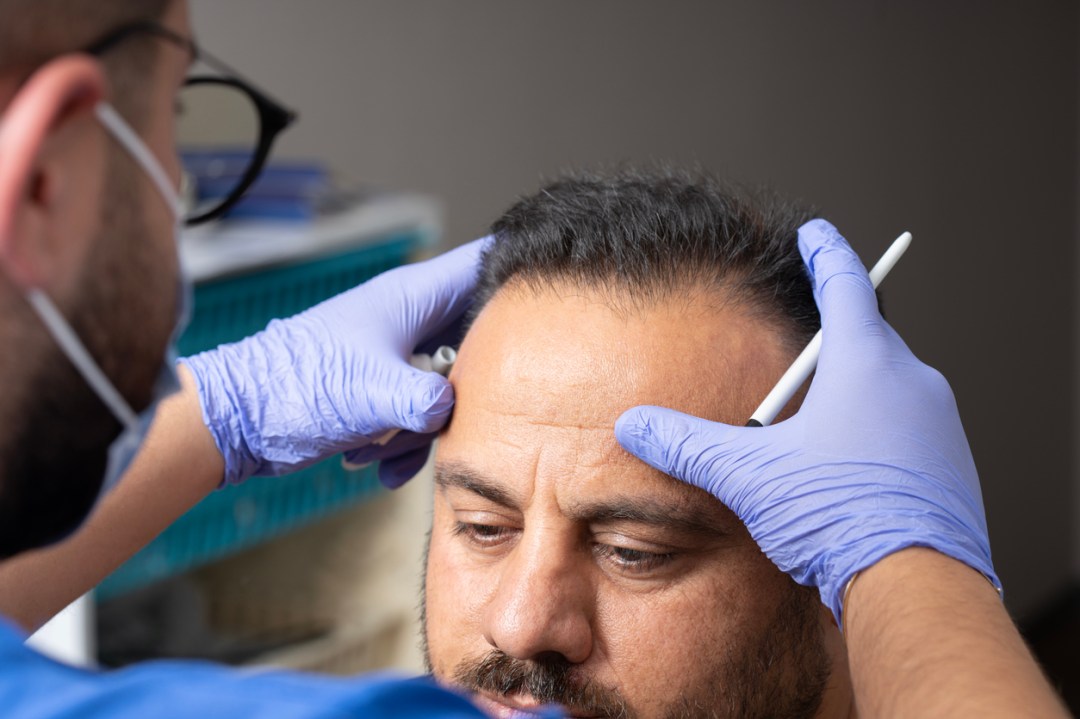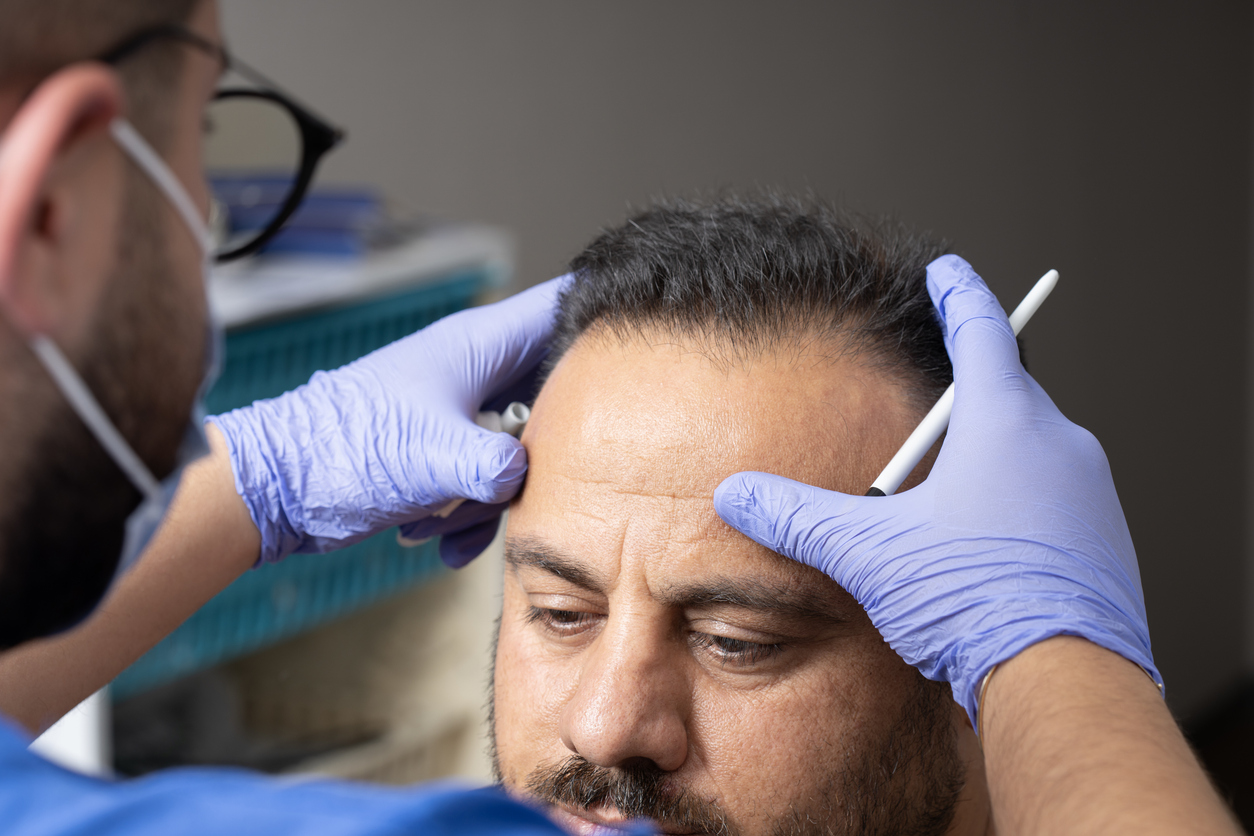I used to think that one of the few things that men had over women was their lack of manifest vanity. Not that men weren’t vain, but apart from turning their chests into Doritos at the gym or dyeing their greying locks that unnatural shade of black, there were very few ways for them to enact these impulses. That was, until hair transplants.
One of the men in my local corner shop was proudly peacocking the follicles sprouting from his forehead
As it turns out, hair transplants aren’t actually a new thing. According to my research (Google), modern hair transplant techniques were pioneered in Japan in the 1930s. Despite being nearly 100 years old, the operation has surged in popularity in recent years. Why? Well, it seems to be a heady mix of technological advancements (non-invasive procedures such as follicular unit extraction); vocal celebrity champions (Wayne Rooney, Jamie Laing and Anton Du Beke); and the pandemic (both the endless Zoom calls causing an increased fixation on physical appearance, and the opportunity for low-key recovery provided by the lockdowns). The result is that now, everywhere you look, there are men nurturing budding barnets and no shame whatsoever. I, for one, am horrified.
The other day, one of the men in my local corner shop was proudly peacocking the follicles sprouting from his forehead to my other half, who is bald. It was a little upsetting. Not for him, nor my partner – who has long been at peace with his lack of hair, and found the whole exchange morbidly fascinating – but for me. I saw the fact he’d undergone such a procedure as embarrassing, but he clearly thought it as some kind of badge of honour. A sign of success. His excitement was obvious; any day now his head would once again be filled with hair, and then his life would really start.
I’ve always preferred my men sans hair. As Freud would undoubtedly contend, this is because I am the daughter of a baldie (it should be noted that my dad had a fantastic head of hair in his day, but when his hairline started receding he bit the bullet and did the only sensible thing – shaved off what remained). I think what really put me off though was growing up in the 1990s with its horrors such as curtains and frosted tips. While some women fantasise about running their hands through a man’s luscious locks, I’ve always found the allure of a shaved head hard to resist. It’s cleaner, simpler, and you can’t over-gel it.
Sadly, few men seem to agree. According to the Wimpole Clinic, ‘Europeans saw a 240 per cent increase in interest in hair transplant surgeries between 2010 and 2021.’ Like all cosmetic surgeries, it’s a lucrative business; market research and industry analysis agency Straits Research claim the global hair transplant market was worth $8 billion in 2023, and will grow to $16.6 billion by 2032.
The predicted growth is hardly surprising. Search ‘hair transplant’ on social media and you’ll be greeted with an endless stream of (mainly young) men eagerly sharing their journeys from slaphead to mophead (via the stomach-churning pustulation stage). Depressingly, most of these stories are accompanied by tales of depression and shame, all caused by the onset of baldness – a completely natural stage in the ageing process.
The problem with hair transplants has little to do with my tastes. It’s what it says about our society, and where we’re heading, that disturbs me. Along with Botox, fillers and other widely available ‘tweakments’, I’m troubled that many people are opting for medical procedures instead of facing the challenges of ageing. Even the industry is keen to remind potential clients of the risks. The British Association of Hair Restoration Surgery recently put out a statement saying: ‘It is important that members of the public understand that hair transplant surgery is not without risk. While the chances of life-threatening complications are less than with general plastic surgery procedures, they still occur. Appearance-related complications are more common and can have a significant psychological impact on patients.’
What we’re seeing is the normalisation of vanity under the guise of mental health – when actually, the healthier option would be to accept that none of us is perfect, physically or otherwise, and neither are we meant to be. So if you are balding and reading this: stay strong. Resist the transplants. And keep your hair off.
This article is free to read
To unlock more articles, subscribe to get 3 months of unlimited access for just £3








Comments
Join the debate for just $5 for 3 months
Be part of the conversation with other Spectator readers by getting your first three months for $5.
UNLOCK ACCESS Just $5 for 3 monthsAlready a subscriber? Log in